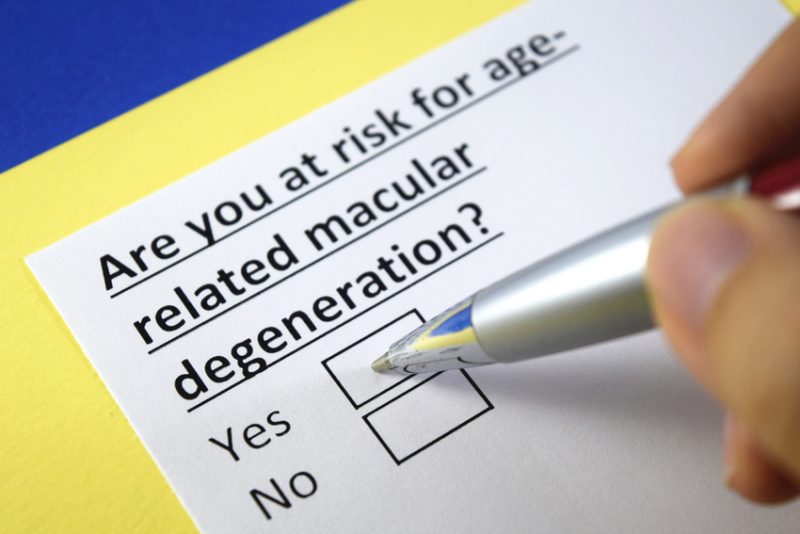Macular Degeneration — causes, diagnosis and prevention

We rely on our eyesight for most aspects of our lives, ranging from everyday tasks to hobbies and activities. Vision loss can, therefore, have a dramatic effect on our quality of life. Age-related macular degeneration (AMD), is the leading cause of vision loss in people aged over 50. In this blog, we will look at macular degeneration causes, symptoms, prevention and diagnosis so that you know what to look out for to protect eye health.
What is AMD?
AMD is an irreversible eye disease that affects the macula (the central part of your retina) and causes vision loss. This means your peripheral vision remains unaffected but your central vision is unclear, whether you are looking at things near or far away. AMD worsens over time and often leads to blindness. Common macular degeneration symptoms include:
- blurred, wavy or distorted vision
- loss of central vision, with the appearance of dark, blurry spots
- changes in perception of color
- needing brighter light conditions
- difficulty recognizing faces

Macular degeneration prevention
Although one of the biggest risk factors for AMD is age, which is why it is most common in people over the age of 50, there are other factors that have been linked to the onset of this sight-threatening eye disease. Some of these factors relate to lifestyle choices, which you can alter to reduce your risk of developing it later on in life. These factors include:
- eating a diet high in saturated fat, for example, butter, cheese, and meat
- excessive exposure to UV light
- smoking
- high blood pressure
Another major risk factor is having a family history of AMD.

Diagnosing macular degeneration
Although there is no cure for macular degeneration, there are treatments available that may prevent it from getting worse, therefore it is important to get AMD diagnosed as early as possible. But where do you start?
At Dr. Bruce Coward & Associates, our Optometrists don’t just examine your eyesight for changes in your vision during an eye examination, we also thoroughly assess and review your eye health.
During our eye disease management service we use a variety of tools and tests to rule out or diagnose any eye diseases. One of these, the Volk 90D lens, specifically allows us to examine the macula at great magnification, so we can determine whether macular degeneration is present and then act to recommend the best course of treatment for you to manage the condition.
Another way of identifying and monitoring the progress of AMD is by having an OCT scan. This is a revolutionary eye health assessment that captures 3D images showing the layers of your retina, so that we can quickly identify any abnormalities or very early signs of eye disease. Each time you have an OCT scan with us, we compare your images against all of your previous scans. This way, we can identify any very subtle changes in your eye health quickly and accurately.
Early diagnosis is important as there are AMD treatments available. In many cases early treatment with vitamin therapy has proven to slow or stop disease progression. Early diagnosis of “wet” AMD (fluid leaking under the retina) when it occurs can be sight-saving as there are treatments available to reverse this condition. Another benefit of early diagnosis is that it allows people to make early lifestyle changes, like quitting smoking, before serious damage is done.
The best way to stay on top of your eye health and ensure your vision remains healthy is to have regular eye exams. Contact us today to book yourself in for your next comprehensive eye exam and OCT scan at Dr. Bruce Coward & Associates, your Optometrists in Ontario.


